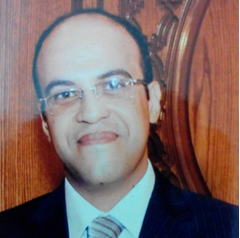Electrical Communication and Electronic Systems Engineering (ECE)

ECE Programs Aims:
The Electrical Communication and Electronic Systems Engineering (ECE) is concerned with the theory, design, implementation, and applications, both actual and potential, of various devices and systems based on electrical communication and electronic phenomena and properties. The aims of the ECE programs are:
- Provide a flexible and versatile route through the Electrical and Electronic Systems Engineering area.
- Acquire particular expertise in a wider and more varied background by choosing their own minor in either Engineering Communications, or Engineering Electronics concentrations.
- Provide considerable understanding and confidence in the Engineering Communications and Engineering Electronics.
- Enhance the personal and professional development of individual students.
- Develop the necessary knowledge and skills to prepare students for a career in the Electrical.
- Communications and Electronics sector for further study.
- Develop the intellectual and practical skills necessary for the student in Electrical Engineering area.
- Provide support for multinational and local institutions.
CSE Programs Aims:
The Computer Systems Engineering (CSE) program is a discipline that embodies the science and technology of design, construction, implementation, and maintenance of software and hardware components of modern computing systems and computer-controlled equipment. Computer systems engineering has traditionally been viewed as a combination of both computer sciences (CS) and electrical engineering (EE). Computer systems engineering is a field that experiences effects from rapid technological development in different real life applications. The program aims for the computer systems engineering graduate to be:
- Trained to be proficient in the design and implementation of computer systems, both hardware and software.
- Design digital control circuitry and program it to function correctly.
- Knowledgeable in related mathematics, physics sciences, electrical, electronics, communications, computer hardware and software, networking and other engineering concepts and systems.
- Expert through practicing the discipline concepts in solving problems of real applications. This level of expertise should be permanently upraised by engaging in life-long learning processes.
Welcome from the Department's Head:
 Welcome to the Electrical Systems Engineering (ESE) Department website. Our department is one of the largest in the Faculty of Engineering and one of the most diverse ESE departments in the nation.The department offers two programs; Electrical Communication and Electronics (ECE) and Computer Systems Engineering (CSE). Among the multiple areas of education and research in our department are Embedded Systems; Biomedical Imaging; Sensing and Signal Processing; Computer Engineering and Systems; Device Science; Electromagnetics and Microwaves. We are presently in the process of establishing a new program on Renewal Energy and Power Systems.
Welcome to the Electrical Systems Engineering (ESE) Department website. Our department is one of the largest in the Faculty of Engineering and one of the most diverse ESE departments in the nation.The department offers two programs; Electrical Communication and Electronics (ECE) and Computer Systems Engineering (CSE). Among the multiple areas of education and research in our department are Embedded Systems; Biomedical Imaging; Sensing and Signal Processing; Computer Engineering and Systems; Device Science; Electromagnetics and Microwaves. We are presently in the process of establishing a new program on Renewal Energy and Power Systems.
Our department programs are fully validated by the University of Greenwich in the UK and the British Quality Assurance Agency. Our graduates receive two certificates; one from MSA accredited by the Egyptian Supreme Council of Universities and the Egyptian Engineering Syndicate and another by the University of Greenwich.While the two programs currently offer a bachelor degree, we are currently working on establishing a graduate program. We will start by offering a Master’s degree in Electrical Communication and Electronics. I invite you to explore our web pages and learn more about us.
We hope that you will also have the opportunity to visit us in our state-of-the-art facilities in the 6th of October City. Our mission is to serve the public and the university community by providing superior career-integrated education in electrical systems engineering. This has been the case for nearly two decades and we fully expect to continue to do this with an even higher sense of enthusiasm for many years to come.
We are expanding our cooperation with the public and private sectors to serve the community best. Graduates of our department successfully form small companies incubated on our campus.
Dr. Ahmed Mohamed Diaa Eldeen
Head of Electrical Communication and Electronic Systems Engineering (ECE)
MSA University.
An Overview of the two Programs:
- The two programs include a number of courses and each course has a specific weight in credit hours.
- On average, each course has a weight of 3 credit hours.
- In addition to the first year as being a general year to all programs, the advancement through the program courses is distributed progressively throughout the four-year plan.
- Students cannot register for a course unless the course’s prerequisites are met.
- In order for a student to graduate from any one of the two program, he/she has to successfully complete all the required courses for this program plus the general year, with a total of 168 credit hours.
- Students can complete all required credit hours over a minimum of 4 years when enrolled for 2 semesters each year, Fall and Spring. The Summer semester is optional and offered for a limited number of courses.

